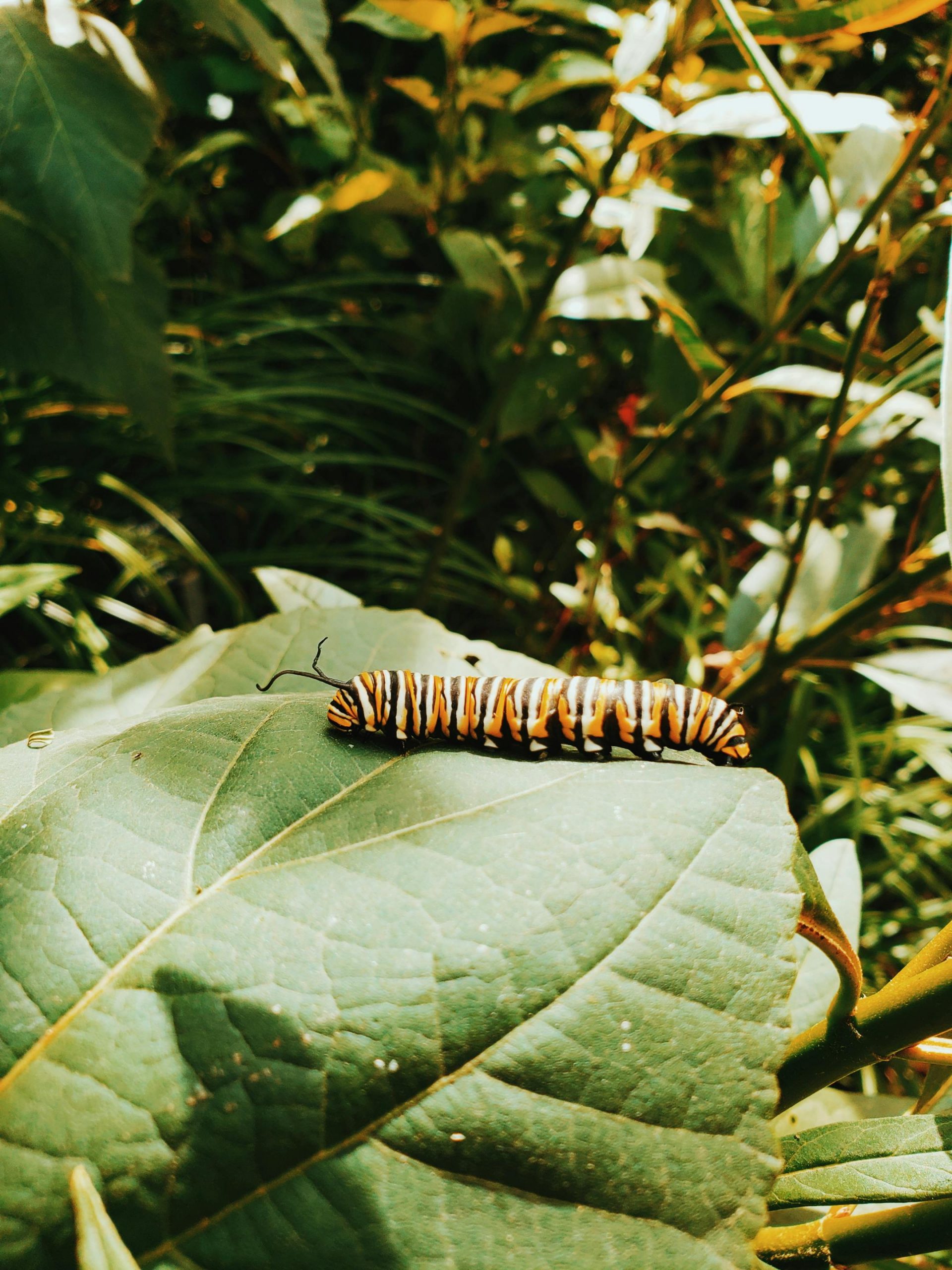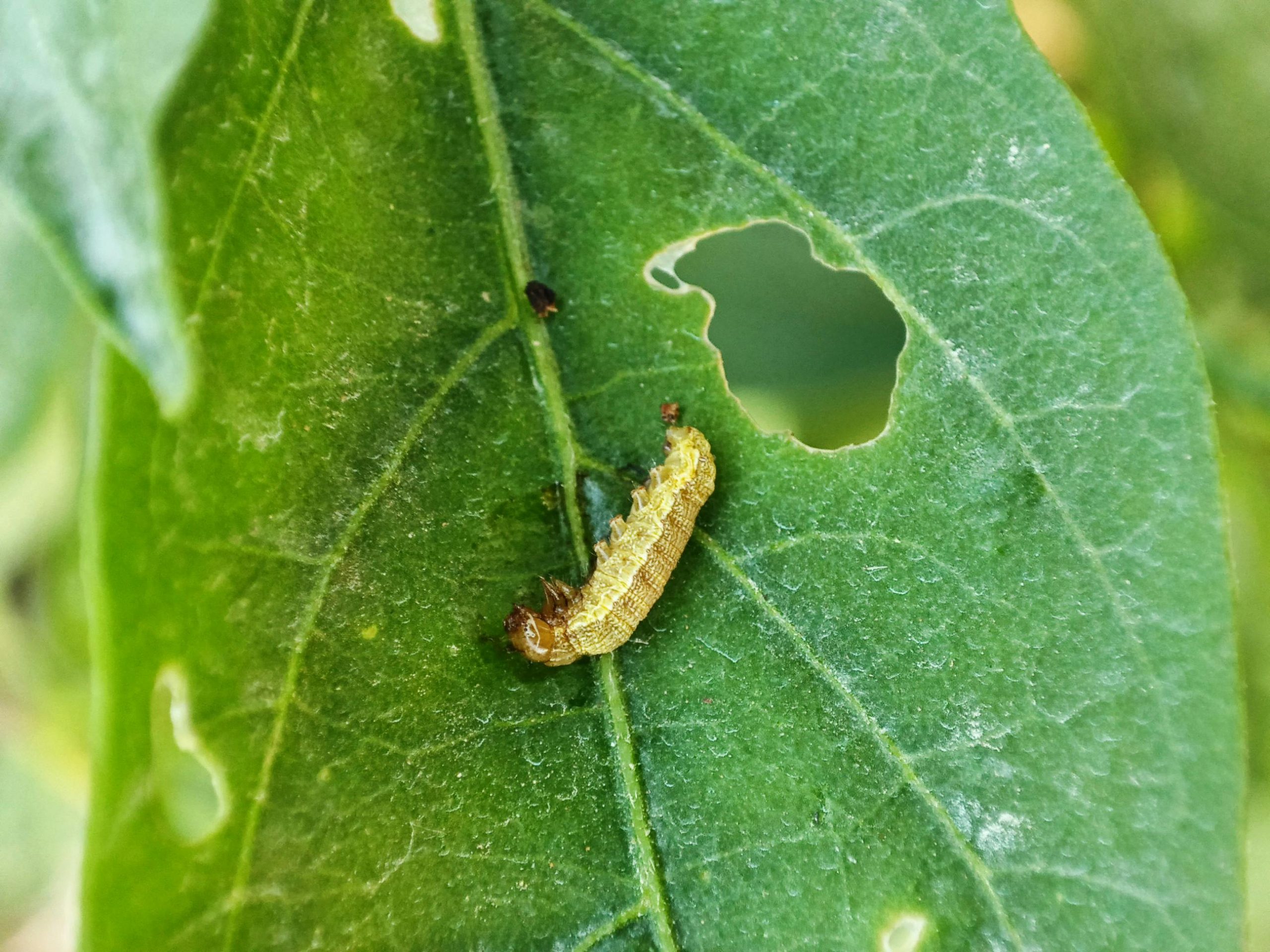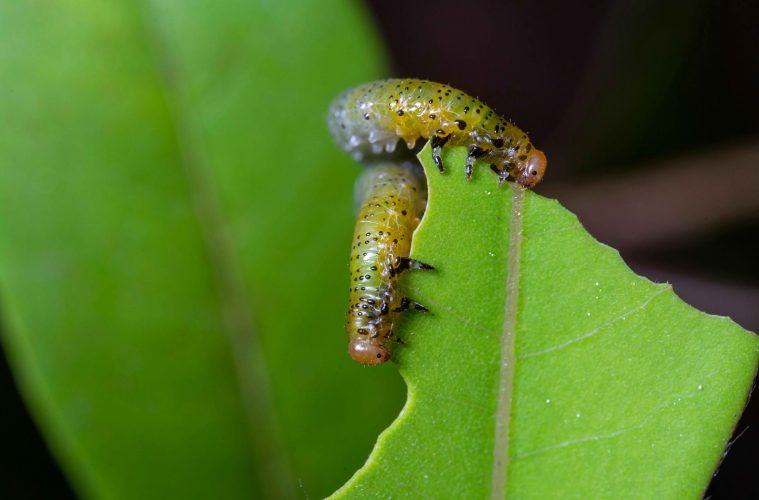Every veggie-growing gardener has at some point cursed the arrival of caterpillars, mainly due to their destructive behaviour. The damage caterpillars cause can be extensive and visible. There are, however, ways to help control caterpillars.
Signs of caterpillar activity
One of the most disheartening sights of caterpillars in your garden is seeing the destruction they cause to your vegetation. Caterpillars can do a lot of damage in a short time.
- Eggs: Caterpillar eggs are left behind on your plants by butterflies. They may be hard to differentiate from other insect eggs, but just be observant when you see butterflies lingering on your plants.
- Leaf damage: These insects will feed and chew on leaves from the outer edges, while other garden pests will leave holes in the middle of leaves.
- Webbed nests: Webworms and tent caterpillars’ larval webbed nests and intense eating frenzies defoliate the tree.

Image Credit: Pexels
Controlling caterpillars
Their life cycle of caterpillars is quite fascinating, as they transform into beneficial butterflies or moths, which can contribute significantly to your garden. However, they can become destructive before reaching this stage, and their hunger can kill plants in a matter of hours. If you suspect caterpillar infestation in your garden, you may look for ways to control it.
Here are some methods for getting rid of caterpillars:
- You can pluck the caterpillars off plants and drop them into a bucket of soapy water. Some eggs can be removed with a flush of water. You may also pluck them and squish the larvae to help destroy them. Some gardens may move the eggs to a different part of your garden, away from your veggies.
- Placing cardboard or tin foil at the base of your plants can help repel caterpillars. Keeping the ground around your plants free from dirt and debris can also be helpful.
- Buying beneficial insects for your garden can be another method to eradicate the problem. These insects will feed on the larvae, warding off the infestation. Insects like the parasitic wasps use the caterpillar’s body as a nest for their eggs.
- When using insecticides, choose those specifically designed to control caterpillars, as you don’t want to harm beneficial insects in your garden. Most caterpillars are susceptible to insecticide products. If you suspect a caterpillar infestation or see signs of them, treat your plants well in advance. Only use organic insecticides for your caterpillar control.
- Homemade solutions can also be helpful. A vinegar and water solution will kill and repel them by spraying wherever you see the caterpillars. Homemade pepper spray can also be effective.

Image Credit: Pexels
ALSO SEE: 6 BENEFICIAL BUGS YOU WANT TO SEE IN YOUR VEGGIE GARDEN
Feature Image: Pexels

